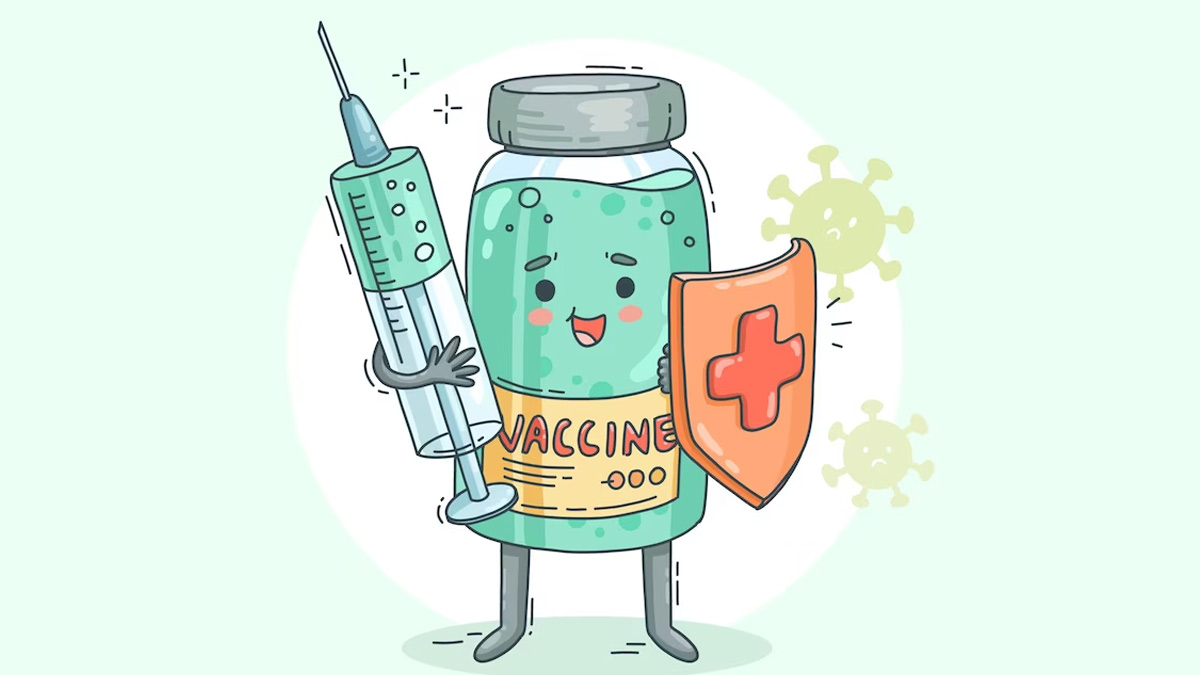
COVID-19 led to widespread death and infections, and made us experience extended periods of quarantine and lockdown. The entire world wished for a vaccine against this disease as soon as possible. The COVID-19 pandemic has demonstrated the significance of vaccination in preventing disease spread.
Table of Content:-
National Vaccination Day, which falls on March 16 every year, is observed with the intention to garner awareness about the importance of vaccines and show gratitude for the commitment of the front-line healthcare workers who fight to ensure that every person receives immunisations. It is a day to remember India's vaccination successes and encourage people to get vaccinated against various diseases. "Vaccines Work For Everyone" is the theme for National Vaccination Day this year.
What Is Vaccination

Vaccination is a medical procedure in which a vaccine is administered to stimulate the immune system to develop immunity against a specific infectious disease. The disease-causing virus or bacteria, or a similar, non-infectious substance that imitates the virus, is contained in the vaccine in a small, weakened, or dead form. The body creates antibodies against the vaccine because it perceives it as a foreign substance. These antibodies remain in the body and shield it from subsequent infections caused by the same pathogen. A vaccine can prevent the spread of infectious diseases and has saved millions worldwide.
Also Read: Importance Of Vaccinations For Healthy Ageing
Significance Of National Vaccination Day
The day honours both India's victory against the polio virus and the value of immunisations for public health. The first jab of the oral polio vaccine was given in India on March 16, 1995. National Vaccine Day was established that same year on March 16.
History Of Vaccination In India
The introduction of smallpox vaccination by the British government in India in 1802 marks the beginning of vaccination in India. Millions of people died from the terrible disease smallpox throughout the world. The vaccine was developed using the cowpox virus, first identified in 1796 by an English physician named Edward Jenner.
In 1978, The Expanded Program on Immunization (EPI), which the Indian government established, offered free vaccinations to children under five. The first six illnesses that were the programme's focus were measles, polio, diphtheria, tetanus, and pertussis (whooping cough). The program later included Hepatitis B, Haemophilus influenzae type b (Hib), and Rotavirus vaccines. The program's objectives were to improve children's health in India and reduce the incidence of diseases that immunisation may prevent.

Polio was one of the major diseases targeted by the EPI. Polio is a viral disease that can cause paralysis and even death in some cases. In 1985, the Indian government launched the Pulse Polio Immunization Campaign to protect all children under five from polio. Through two annual national immunisation days (NIDs), the oral polio vaccine (OPV) was given to children as part of the program. The program was a massive success, and the incidence of polio cases decreased significantly over the years.
Also Read: Difference Between Immunisation and Vaccination Explained
In 2014, India was declared polio-free, a significant milestone in the country's vaccination history. The relentless efforts of medical professionals and volunteers who worked diligently to ensure that every child in India received the polio vaccine contributed to the success of the polio eradication operation.
Takeaway
Despite efforts to raise knowledge of vaccines' value, many people ignore them or aren't convinced of their effectiveness. Yet, experts have repeatedly emphasised the importance of vaccinations and how it is ideal for everyone to receive the required vaccines as soon as possible with suitable competent medical assistance.
Also watch this video
How we keep this article up to date:
We work with experts and keep a close eye on the latest in health and wellness. Whenever there is a new research or helpful information, we update our articles with accurate and useful advice.
Current Version
